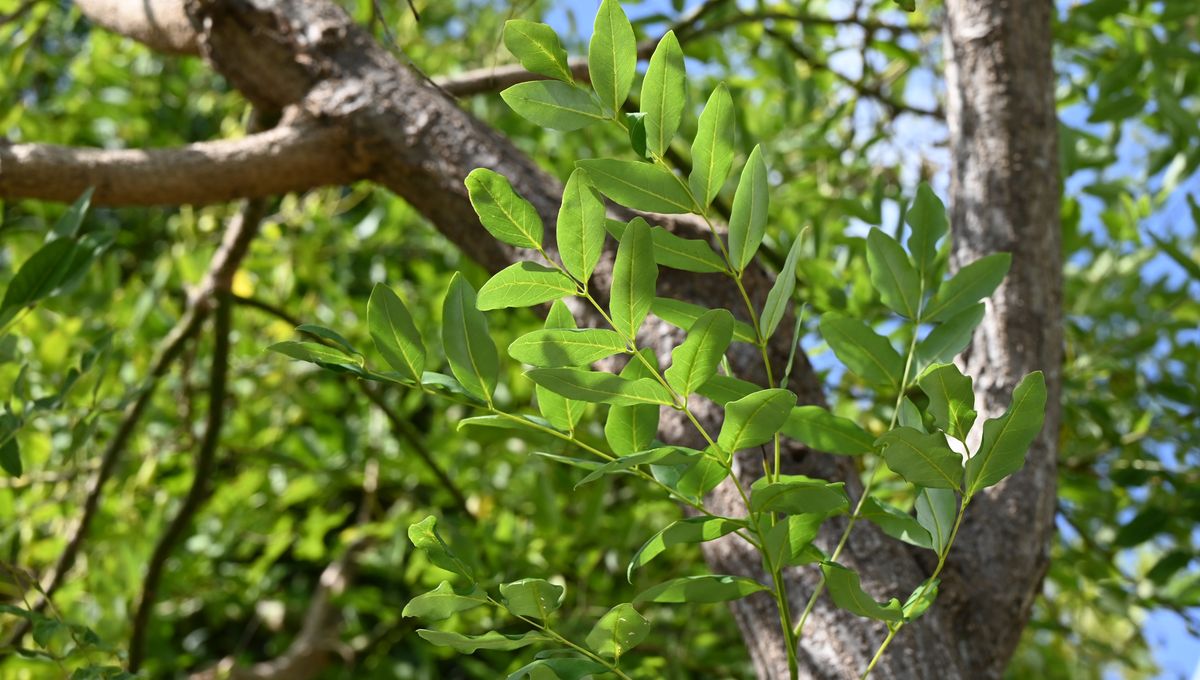
Leaving streetlights on all night has an unexpected effect on the trees around them, causing them to sacrifice growth for better defense against insects.
Street lighting has many benefits, but there is a price to pay for the loss of darkness. It certainly interferes with our view of the stars, and animals are suffering. When scientists from the Chinese Academy of Sciences noticed how little insect damage was occurring to tree leaves in urban areas, lighting was one suspect.
“We noticed that, compared to natural ecosystems, tree leaves in most urban ecosystems generally show little sign of insect damage. We were curious as to why,” said Dr Shuang Zhang of the Chinese Academy of Sciences in a statement.
We might expect that if urban insects are not chowing down on tree leaves as much, the cause would relate to the animals, not the plants. Perhaps light, or air pollution, was affecting the insects directly. Alternatively, the nocturnal illumination might help predators catch the herbivores, leaving fewer left to do their munching.
However, Zhang and colleagues also explored the possibility that trees exposed to light through the night would focus on defending themselves through turning up the unsavory chemicals, rather than growth. They tested this by collecting nearly 5,500 leaves from Japanese pagoda (Styphnolobium japonicum) and green ash (Fraxinus pennsylvanica) trees near streetlights in Beijing, and some placed further away from lights. All were the same distance from busy roads, so exposure to air pollution did not vary.
Both species produced tougher leaves that made them harder to chew when exposed to 24-hour light. Unsurprisingly, this made leaves from more well-lit areas less attractive to herbivorous insects.
Other differences varied by species. The Japanese pagodas exposed to more light had lower concentrations of nitrogen and phosphorus, both vital nutrients. Green ash trees, on the other hand, had more nitrogen when exposed to extra light, and less insect-deterring tannin, but their leaves were smaller.
“The underlying mechanism for this pattern is not yet fully understood,” said Zhang. “It is possible that trees exposed to artificial light at night may extend their photosynthesis duration. Additionally, these leaves might allocate a greater proportion of resources to structural compounds, such as fibers, which could lead to an increase in leaf toughness.”
The authors speculate the difference between species could be because green ash trees are less attractive to insects under ordinary conditions, and so may experience less pressure to redirect resources towards deterrence.
Zhang and colleagues aren’t ruling out increased predation on the insects as a further contributing factor, but that would be harder to test.
There’s a reason that trees don’t make their leaves tougher all the time. Energy invested in building defenses comes at the cost of growth, and ultimately seed production. You might not care if insects struggle to feed, but if it means you get less summer shade, the issue might seem more relevant, particularly in a city prone to overheating. The authors also observed: “It’s noteworthy that leaves with higher toughness tend to decompose at a slower rate, potentially affecting the nutrient cycling rate negatively.”
Moreover, Zhang noted: “Decreased herbivory can lead to trophic cascading effects in ecology. Lower levels of herbivory imply lower abundances of herbivorous insects, which could in turn result in lower abundances of predatory insects, insect-eating birds, and so on. The decline of insects is a global pattern observed over recent decades. We should pay more attention to this trend.”
Zhang acknowledges a study on two species in a single city may not be universally applicable. Nevertheless, it adds to existing arguments for turning streetlights off for part of the night, or having them on motion sensors so they only shine when needed.
The study is published in Frontiers in Plant Science.
Source Link: Streetlights Are Making Nearby Trees’ Leaves Harder To Eat